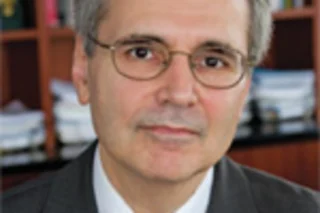Ronald A. DePinho. courtesy University of Texas M.D. Anderson Cancer Center At the annual meeting of the American Association for Cancer Research, which begins tomorrow in Washington D.C., what you notice right away is how every PowerPoint presentation starts with an obligatory conflict-of-interest disclosure slide. Many university researchers, including Nobel prizewinners, consult for pharmaceutical corporations and some even have their own startups. If they can develop a new targeted cancer treatment that staves off death a few months longer, their company might be snapped up by Genentech. The financial stakes are as high as anything happening in Silicon Valley. At an AACR meeting I sat through a couple of years ago, the disclosure requirement often met with resentment, and in The Cancer Chronicles (which will go to press this summer) I describe how some of the speakers expressed their displeasure. A few proudly declared, to a round of applause, that ...
M.D. Anderson's Chief Entrepreneur
Explore the controversies surrounding Ronald A. DePinho at M.D. Anderson Cancer Center and issues of favoritism in grant funding.
More on Discover
Stay Curious
SubscribeTo The Magazine
Save up to 40% off the cover price when you subscribe to Discover magazine.
Subscribe













